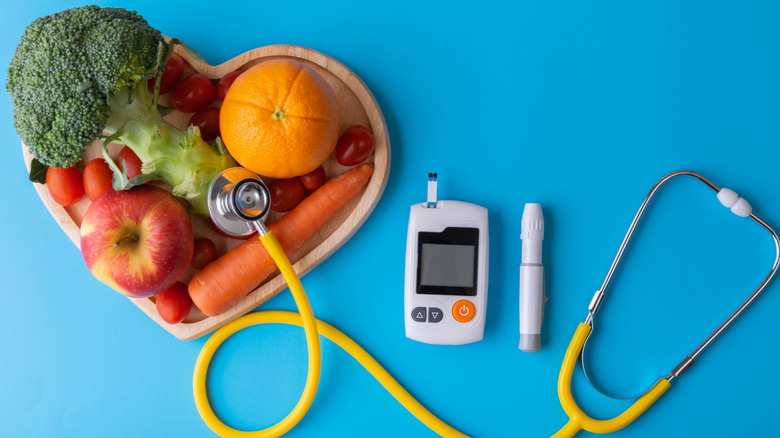Signs That Your Blood Sugar May Be Spiking
Diabetes is among the most common diseases, affecting a significant portion of the U.S. population. About 37.3 million American adults have diabetes, according to the Centers for Disease Control and Prevention (CDC).
The food you eat contains sugar, or glucose, which is then processed into energy in the presence of a hormone called insulin. Diabetes is a condition that either inhibits the body's ability to produce insulin or makes it ineffective. As a result, it may cause a spike in your blood sugar levels (via Cleveland Clinic).
Type 1 diabetes is an autoimmune disease in which the body is naturally unable to produce sufficient insulin to absorb sugar from the bloodstream. This type of diabetes usually occurs in children; hence, it's given the name "juvenile diabetes," says Cleveland Clinic.
On the other hand, type 2 diabetes is an acquired condition that may be caused by several lifestyle factors, such as diet, medical history, age, and habits. It can happen at any age and may cause insulin deficiency or dysfunction. It mostly occurs in middle-aged or elderly folks.
It is important to recognize the signs of having high blood sugar. If you experience these symptoms, you should set up an appointment with your doctor.
What are the signs of high blood sugar?
According to Diabetes.co, the most common sign of high blood sugar is feeling thirsty all the time. Diabetes can make you feel dehydrated because your kidneys are working hard to remove the extra sugar through urination.
Additionally, your continuous thirst may prompt you to drink more water, resulting in the need to pee more frequently, according to the National Institute of Diabetes and Digestive and Kidney Diseases (NIDDK). You may experience urinary incontinence, or a sudden urge to urinate, too.
People who experience blood sugar spikes also frequently experience headaches, which are either mild or severe (via Healthline). These headaches can indicate that blood sugar is either too high or too low. It may further cause you to experience fatigue, says Medical News Today. When blood sugar is high then not enough sugar is getting into the cells where it can provide you with energy.
Diabetes may also affect your eyesight by causing diabetic retinopathy (per the CDC). Diabetic retinopathy is a condition that destroys the retinal blood vessels, thus putting you at high risk of vision problems and blindness. You may initially have blurry vision, but, if your diabetes is not managed in time, it may turn into loss of vision in both eyes.


